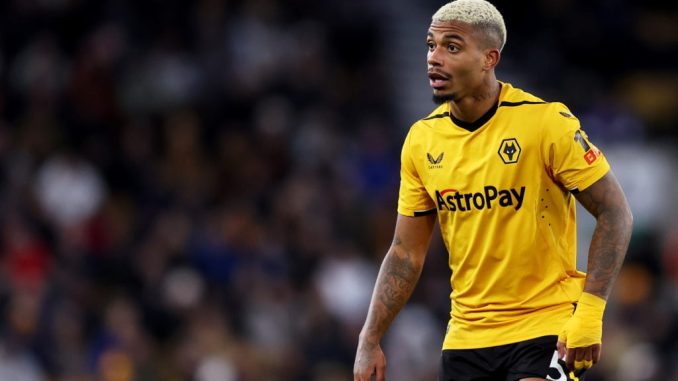
** The Current Quandary of Mario Lemina and Wolverhampton Wanderers’ Defensive Resilience**
In the ever-evolving landscape of football, the dynamics between players, management, and clubs create an intricate web that can both uplift and undermine team harmony. Recently, Wolverhampton Wanderers defensive midfielder Mario Lemina vocalized his discontent regarding the club’s direction, stating that he might consider leaving if critical issues regarding the team’s strategy and performance weren’t addressed promptly. This situation is not merely a reflection of one player’s frustrations but highlights larger issues that can impact team unity, morale, and performance on the pitch.
Lemina, whose talents have been recognized across multiple leagues, embodies the profile of a player who thrives in an environment that values determination and strategic gameplay. His role as a defensive midfielder is crucial; he is the linchpin linking defense to attack, ensuring that opposition players are stymied, while simultaneously facilitating the flow of play for his teammates. This dual responsibility comes with immense pressure, especially in a team like Wolverhampton Wanderers, which has aspirations of climbing the Premier League hierarchy. When a player of Lemina’s caliber expresses a threat to leave, it serves as a barometer for the club’s internal climate.

The reasons for Lemina’s discontent seem to stem from broader concerns within the club, such as inconsistent performances, tactical incoherence, and potential lack of ambition from the management. If players feel that their efforts are not being met with the necessary investments in team improvement—whether it be through new signings, enhanced training facilities, or a clear playing philosophy—they may wonder about their future at the club. Lemina’s outspoken nature represents a call to action not just for himself but for his teammates and the management alike.
Moreover, the implications of a player potentially leaving cannot be understated. The departure of a skillful and influential player can create a gap in the tactical framework of the team, one that may be challenging to fill. It could lead to a loss of cohesion among the squad if other players begin to question their own futures within the club, thus creating a ripple effect that can destabilize the entire setup. Morale can be heavily impacted; if key players like Lemina feel undervalued or neglected, the overall spirit of the team diminishes, leading to less cohesive and passionate performances on the pitch.
Nevertheless, challenges often provide opportunities for growth and evolution. The threat of Lemina leaving could serve as a wake-up call for Wolverhampton Wanderers’ management. Addressing the issues he raised could lead to a renewed focus on strategic planning and player development. By demonstrating a commitment to improvement and support for players’ needs, the club has a chance to rally its troops and fortify its ambitions for the future.
In conclusion, Mario Lemina’s discontent is a critical matter that Wolverhampton Wanderers must address with urgency. His potential departure, while understandably concerning, could catalyze necessary discussions within the club. By tackling the root causes of his frustrations, the management can inspire a renewed sense of purpose and team unity. The essence of football lies not just in strategy and tactics but in the relationships formed on and off the field. A team that listens and responds to its players’ concerns is a team that can evolve and thrive, ensuring that prospects for the future remain positive and collaborative.

Leave a Reply